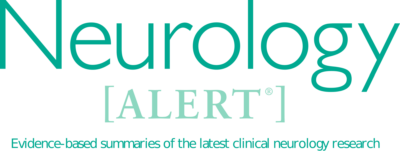
Neurology Alert – December 1, 2022
December 1, 2022
View Issues
-
Early Respiratory Decline in Amyotrophic Lateral Sclerosis
Hypercapnia, a manifestation of early respiratory dysfunction, can be challenging to detect in amyotrophic lateral sclerosis (ALS) patients. Pulmonary function tests are helpful, but their specificity in detecting hypercapnia is low and their use is limited in patients with bulbar weakness. Specific symptoms, such as dyspnea at rest, dyspnea while talking, and use of medications for sleep, can be more reliable in detecting hypercapnia among ALS patients.
-
Atypical Presentations for Inclusion Body Myositis
Inclusion body myositis, the most common acquired myopathy, often is misdiagnosed or diagnosed after a delay of many years. Atypical presentations are not unusual, and clinicians should maintain a high degree of suspicion for this disorder when patients present with slowly progressive muscle weakness in an unusual pattern.
-
Influence of Vitamin Intake on the Prevalence of Migraine
In a large population-based survey, 21.6% of participants reported having severe headaches or migraine. Those reporting severe headaches also reported a lower intake of thiamine and riboflavin, based on 24-hour recall of food intake. There also was an inverse relationship between thiamine intake and reports of severe headaches.
-
Lipid Pathway Dysfunction in Parkinson’s Disease
In this large-scale study, the authors used a comprehensive untargeted lipidomic approach to determine the extent to which lipid dysregulation occurs in patients with Parkinson’s disease generally and in mutation carriers of one of the most common Parkinson’s disease risk genes, LRRK2. Further pathway analysis reveals sphingolipid metabolism, insulin signaling, and mitochondrial function as major metabolic pathways dysregulated in Parkinson’s disease.
-
Can Artificial Intelligence Help Us to Choose the Best Anti-Seizure Medicine?
A new deep learning artificial intelligence algorithm was able to identify the most effective initial drug to treat newly diagnosed epilepsy, compared to the physicians’ clinical judgment. The algorithm required prospective, carefully collected clinical data for its success.
